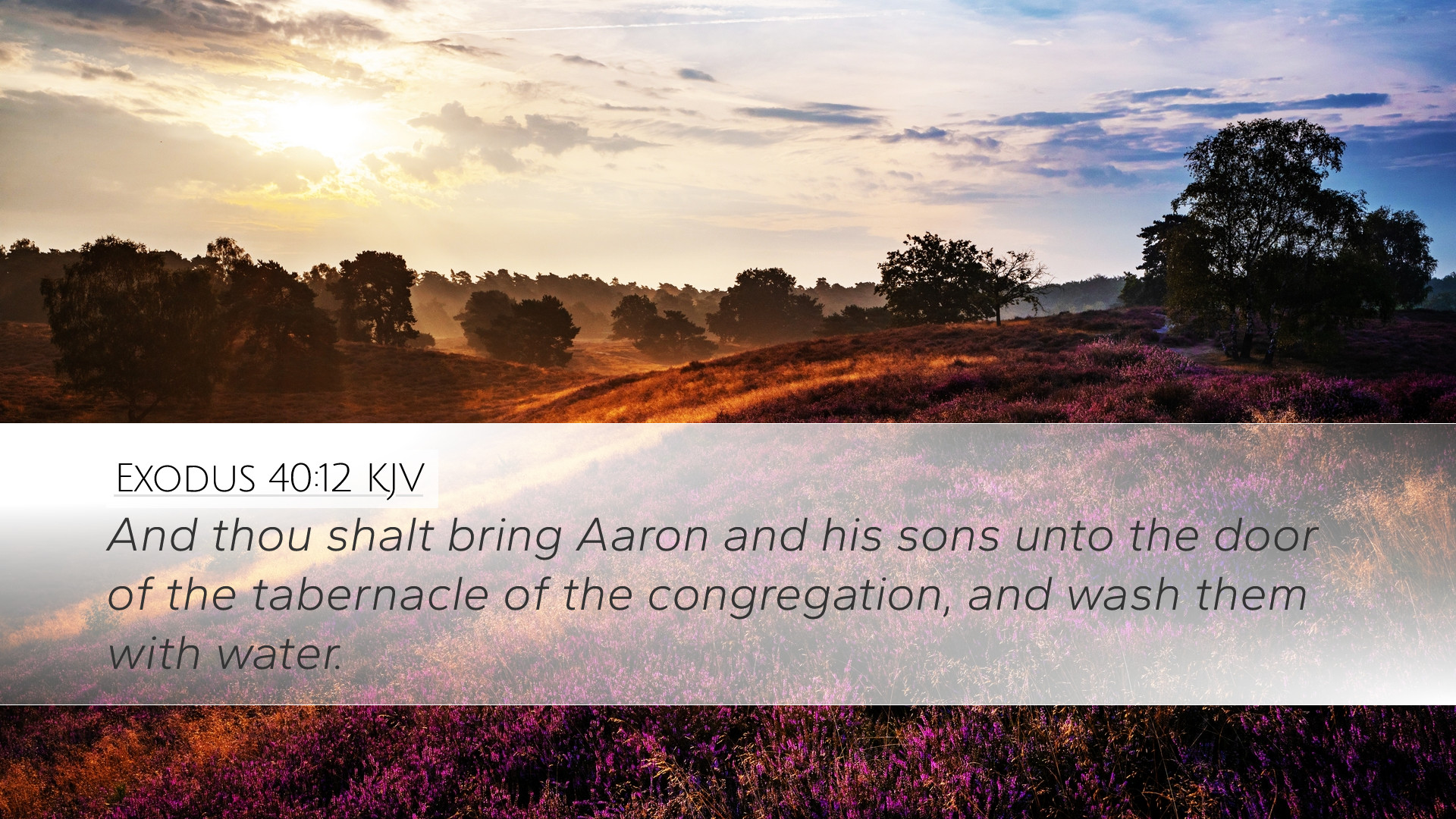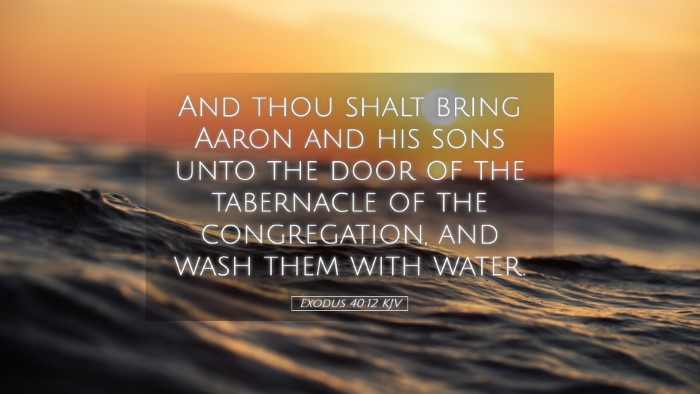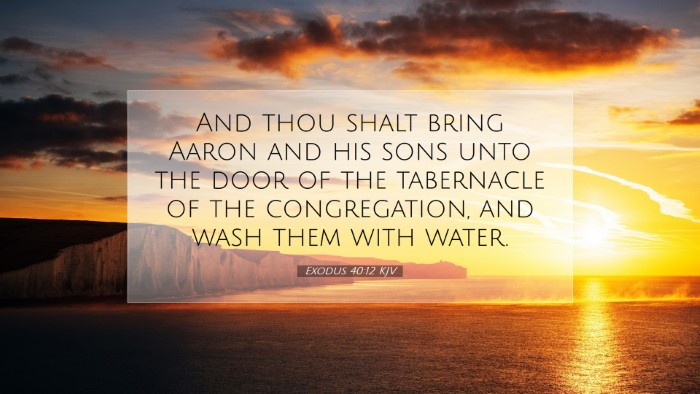Commentary on Exodus 40:12
Exodus 40:12 presents a significant instruction concerning the individuals who would serve in the priesthood under the Old Covenant. The verse states:
"Then thou shalt bring Aaron and his sons unto the door of the tabernacle of the congregation, and wash them with water." This event marks a pivotal and sacred moment in the establishment of the Levitical priesthood and serves as a foundational principle for the understanding of priestly duties and rituals.
Historical Context
The Israelites had just been led out of slavery in Egypt and were on their journey towards the Promised Land. God had given Moses detailed instructions regarding the construction and consecration of the Tabernacle, which served as the earthly dwelling-place of God amidst His people. Exodus 40 concludes the book with the Lord's directives on setting apart Aaron and his sons for service, highlighting the importance of divinely appointed leadership.
The Meaning of Washing
The act of washing Aaron and his sons emphasizes several crucial theological and practical lessons:
-
Symbolism of Purity:
The washing signifies purification. According to Matthew Henry, cleanliness represents moral and spiritual purity, which is essential for anyone approaching God. In this rite, the priests are cleansed to serve in the holiness of the Tabernacle, foreshadowing the New Testament teaching of being washed by the blood of Jesus (Hebrews 9:22).
-
Divine Authority:
The command for washing, as highlighted by Albert Barnes, denotes that the priestly office comes with divine authority. The act is not merely symbolic; it is a command from God, illustrating that true authority in ministry comes from Him, not from human appointment.
-
Preparation for Service:
Adam Clarke notes that this rite is a preparatory step for Aaron and his sons to fulfill their roles as priests. Before assuming their sacred duties, they must be consecrated and ready to approach the Holy Place, illustrating that spiritual leaders must be adequately prepared and purified.
Types and Shadows
This passage also establishes significant typological connections with Christ's high priestly ministry:
-
Christ as Our High Priest:
Just as Aaron and his sons were consecrated through washing, Jesus Christ fulfills and surpasses this by offering Himself as the perfect sacrifice, providing ultimate cleansing for all believers (Hebrews 4:14-16).
-
Believers’ New Identity:
All who trust in Christ are washed and sanctified (1 Corinthians 6:11), indicating that the washing is indicative of our new identity and calling in Christ, akin to the priestly identity established in Exodus 40:12.
The Role of the Minister
For pastors and church leaders today, the passage also serves as a reminder of the requisite holiness and humility in ministry. As Henry suggests, ministers are not only representatives of God, but they must also demonstrate the purity of heart and life necessary to guide the flock. The washing, therefore, can be seen as a call to personal holiness and readiness to serve God’s people.
Conclusion
In conclusion, Exodus 40:12 encapsulates rich theological implications about purification, divine authority, and the necessity of preparation for ministry. As we reflect on this passage, may we embrace its teachings, understanding that the work of God requires a purified heart, dedicated and submitted to His calling, thereby pointing to the ultimate high priest, Jesus Christ, who invites us into His presence for cleansing and service.


